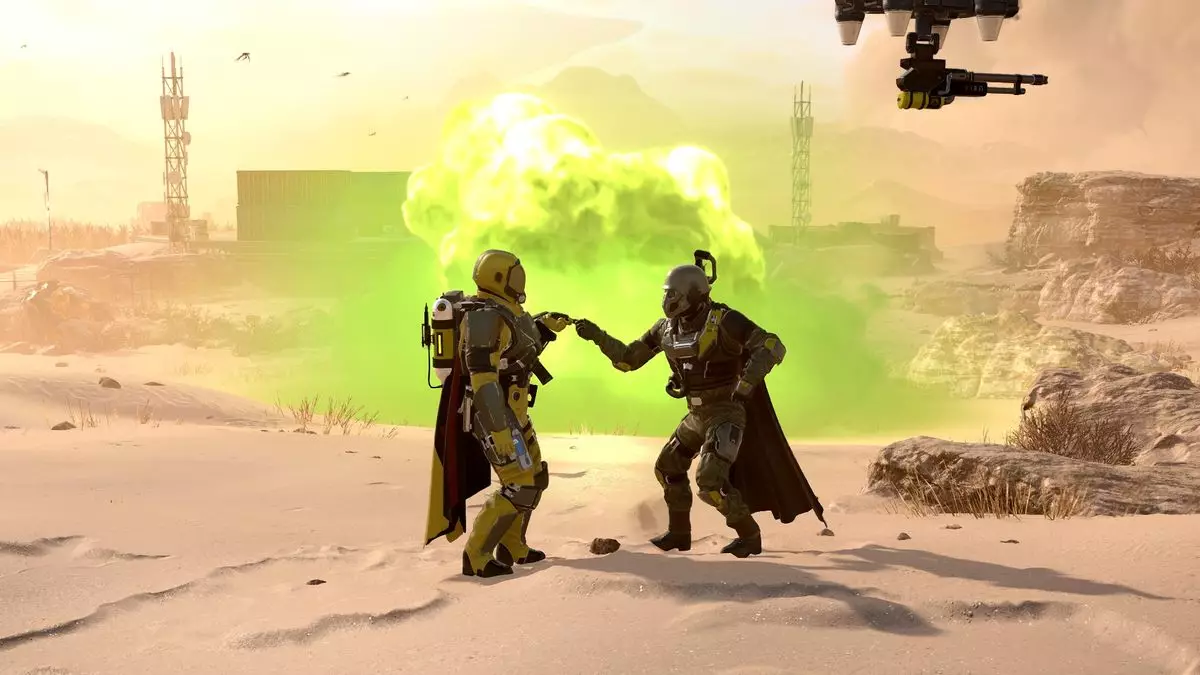In the rapidly evolving landscape of video game music, composers often face a unique set of challenges. Will Roget, known for his stirring orchestral arrangements, experienced a pivotal moment in his career leading up to the release of Helldivers 2. Just prior to the game’s debut, Roget contemplated stepping away from the orchestral genre entirely. This self-doubt stemmed from a perception that the gaming community was losing interest in orchestral scores, leaving him questioning the viability of his craft in this audibly innovative environment.
Director Johan Pilestedt initiated a compelling dialogue on social media, stating, “How the Helldivers 2 OST hasn’t won or even been nominated for best score is beyond me.” Such glowing remarks not only highlight the emotional impact of the game’s score but also challenge conventional perceptions of how orchestral music is received within the gaming industry. Pilestedt’s enthusiasm was infectious; he admitted that despite the endless loop of post-production exposure, he continued to find joy in the music—a rarity among game directors. His willingness to advocate for Roget’s effort ignited significant public interest and recognition, shedding light on a score that many may have underestimated.
Roget’s initial hesitations about pursuing orchestral gaming music were reinforced by the immense pressures associated with the genre. He noted the daunting blend of budget constraints and the extensive time commitment required to create compelling orchestral arrangements. However, the immediate and enthusiastic response from players following the release of Helldivers 2 served as a rejuvenating force. From impromptu musical covers to fan-created content—a full metal album being one notable example—the support he garnered from the gaming community was overwhelming. This reaction not only validated his efforts but also transformed his artistic outlook.
The success of Helldivers 2’s soundtrack has rekindled Roget’s passion for orchestral scoring. He remarked on the profound gratitude he feels toward the players and fellow creators who encouraged him to persist in what he initially thought was a waning genre. “For a traditionally orchestral score, what I thought was impossible came true,” he stated, reflecting on the unexpected level of appreciation his work received.
The transition from uncertainty to a renewed sense of purpose underscores the powerful interplay between creators and audiences in the gaming world. Roget’s journey serves as a testament to the resilience of orchestral music within the gaming industry, revealing that there is still a compelling place for grandeur and orchestral depth in today’s dynamically changing soundscapes. As creators like Roget embrace their craft, audiences can look forward to more enriching musical experiences that elevate the gaming narrative.
With this influx of appreciation and creativity, it is apparent that orchestral game music is far from fading into obscurity. Rather, it is undergoing a renaissance, fueled by enthusiastic audiences who recognize the value of such epic compositions. Will Roget’s story invites both composers and gamers alike to celebrate and foster an environment where traditional orchestral music can thrive, merging the rich tapestry of orchestral tradition with contemporary gaming narratives.


Leave a Reply